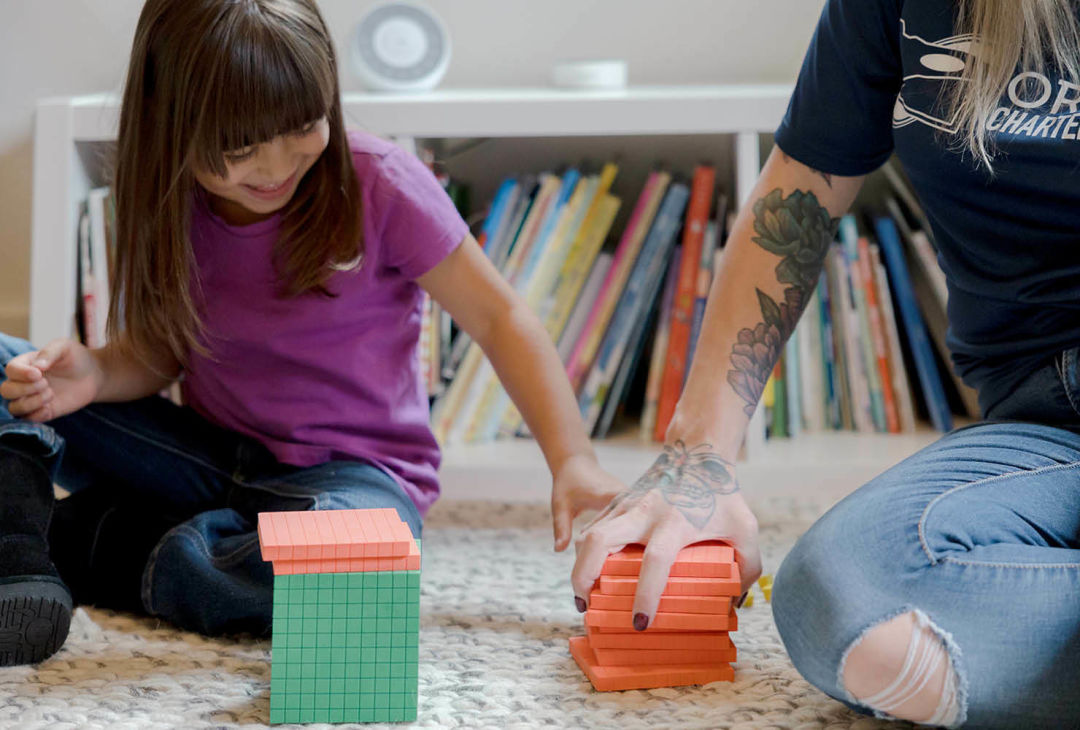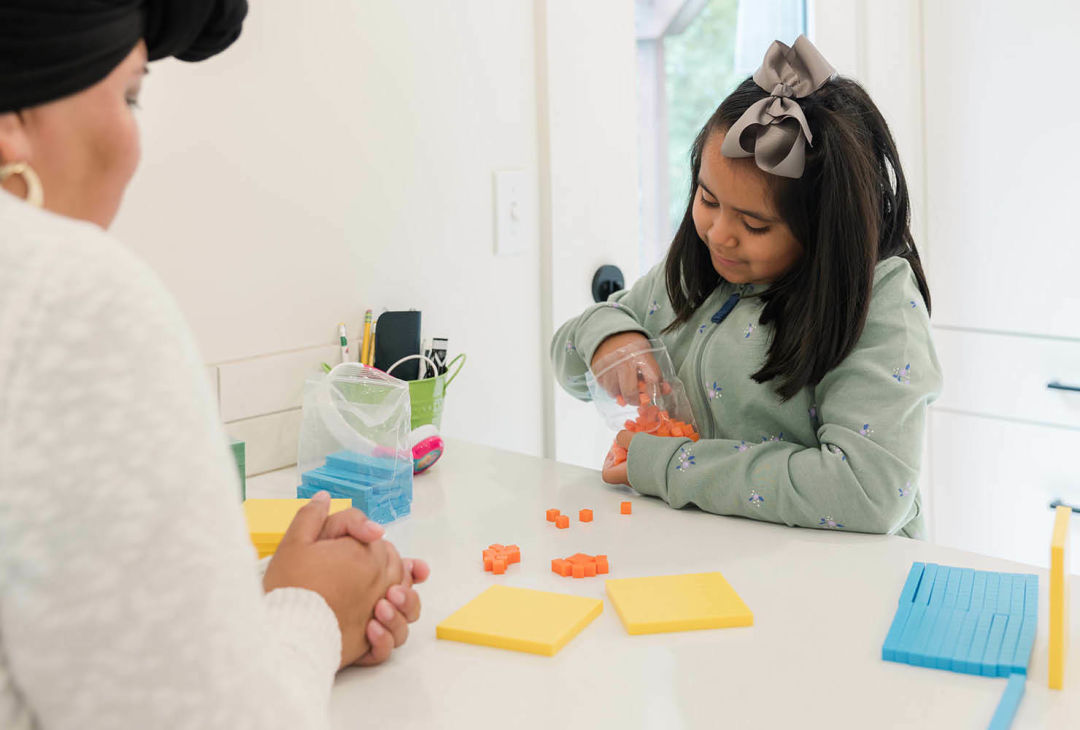Words of Advice for Virtual Education Success

For kids and parents alike, navigating all of the decisions during school can sometimes feel like a decathlon. Not only are there many academic hurdles, but students are often thrown into new social situations that require teamwork and adaptation. Plus, there are many hours of rigorous preparation to vault them into a successful future. Thankfully, Oregon Charter Academy (ORCA) has the right team to help each student plan for and triumph over these challenges.
“I was an athlete and loved coaching, so school counseling was a great fit because it gave me that aspect of seeing students in lots of different settings, not just in a counseling office when they’re really struggling,” said Marci Cammann, the senior manager of counseling at ORCA. “We’re getting that whole perspective on a student’s life: their friends, their social activities, their academics, and their extracurriculars. All as part of the package.”
She oversees a department of eight counselors, various homeroom advisory teachers, counseling assistants, and a registrar. When a new family enrolls with ORCA, it’s likely one of their friendly faces (or voices) that greets them via a welcome call. The key to getting out of the starting blocks smoothly is understanding what actually brought them to a virtual public school in the first place.

"Even before Covid, one of our first questions for families during the welcome call was, 'Tell me about what brought you to our school.' It is always a very telling question, because it gives us so much information about the student's history—the student's strengths and challenges, both personally and academically; their experiences, positive and negative—with the school system and previous school staff, what may be the benefits of online schooling for this particular student, as well as which aspects may be particularly difficult,” Cammann said. “The information we gain from that welcome call helps our homeroom teachers and counselors assist the families with strategies for success here—and that plan, of course, looks a bit different for each student."
The needs of students also vary greatly from K to 12, but counselors work together to create programs that ensure continuity and progress in every aspect of development. Younger kids might learn friendship and communication skills during teacher “read aloud” sessions, and middle schoolers take part in a live Monday morning “breakfast brunch.”
“It gets the kids logged in and excited to do something fun with classmates early in the week,” Cammann said. “Otherwise, it’s pretty easy to procrastinate starting school online.”

High schoolers set their sights on postsecondary education and career aspirations in their High School Success course—mandatory for ninth graders and high school transfers of any age. There, students practice note taking, setting goals, and academic strategies while completing tasks in Naviance, an innovative college and career readiness platform. Through group and individual exercises, they sharpen their techniques for job interviews, budgeting, and putting together a resume. Counselors often lead virtual college tours of community colleges and larger public or private universities, and last year ORCA hosted an online career fair where speakers from different fields gave presentations and answered kids’ questions.

With all of these tools, students graduate prepared for the next step, whatever that may be. In 2021, ORCA graduates earned $1.1 million in scholarships. And many ORCA graduates are able to take advantage of the Oregon Promise Grant, which essentially helps students attend a two-year college for free.
“We do have some of our strongest four-year-college-bound students rethink and say, ‘You know what, that sounds like a pretty good deal right now,’” Cammann said
At heart, Cammann and her team are just people that students can talk to when they need someone to listen. Counselors provide responsive services when students need guidance and confidentiality to navigate difficult situations—sometimes in collaboration with a social worker. Their dependable presence is essential to removing any barriers to learning that might arise following the transition to virtual school. Early on, counselors follow up with families to check on grades and how well everyone is settling into the routine, creating a tight-knit community where no one gets lost in the shuffle.
“Ultimately, our goal is to work together,” Cammann said, “collaborating with families, teachers, and administrators to create a welcoming, inclusive, and safe environment at ORCA, where all students can find their home and thrive.”
---
Oregon Charter Academy
oregoncharter.org
503-897-2272
Mailing: PO Box 1129, Mill City, OR 97360
Physical: 833 NW Santiam Blvd, Mill City, OR 97360




